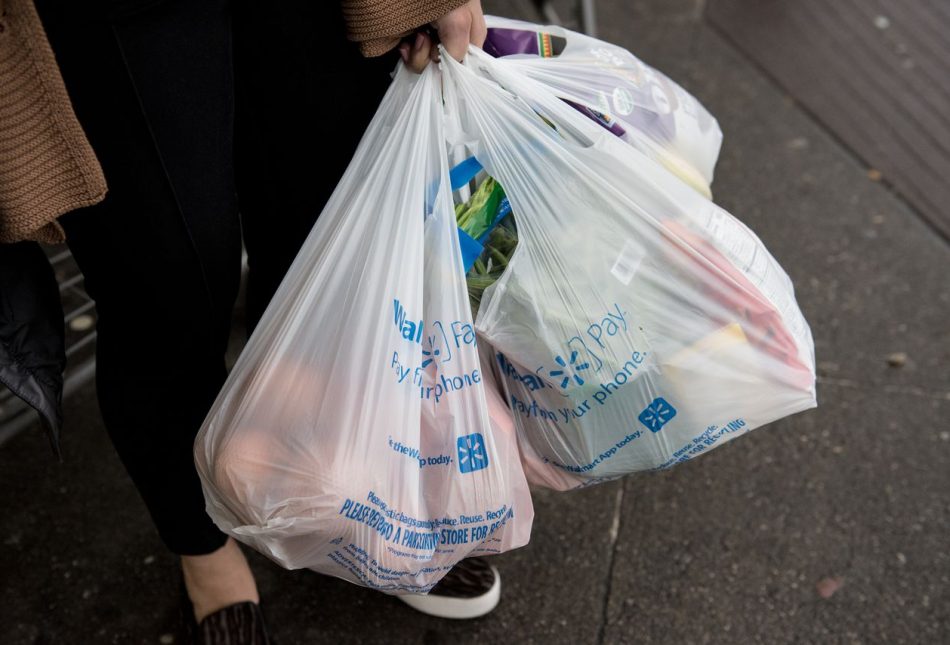City of Las Cruces should reject bag ban

The following appeared in the Las Cruces Sun News on Sunday, April 25, 2021
The City Council of Las Cruces is considering a ban on plastic bags, specifically those bags which are thinner than 2.25 millimeters thick. Restaurants may or may not be exempted from the statute, but banning plastic bags is not a viable solution to our solid waste challenges.
In fact, nearly all cities around the country and State of New Mexico including Albuquerque put their bag bans on hold for the duration of the COVID 19 pandemic. Albuquerque’s ban remains in place with no return date set.
Furthermore, while curbing the use of thin bags may seem like a reasonable policy, stores simply replace thin bags with thicker plastic bags as was done in Albuquerque. That shift led Albuquerque City councilor Pat Davis to say that he wanted to amend the City’s bag ban to also get rid of plastic bags that are thicker than 2.25 thousandths of an inch. The thicker bags were exempted from the law for the simple reason they are considered “reusable,” but Davis called the provision a “loophole.”
This discussion was going on in early March of 2020 which thankfully means it was never adopted. And, while the Centers for Disease Control has said that surface transmission of COVID 19 is extremely rare, that does not mean that banning plastic bags is a good thing for public health.
A 2018 report from Loma Linda University used data from an experiment in which researchers purposely “contaminated” a reusable bag with a harmless form of a virus. A single shopper then went through a typical grocery store, and the research team tracked the spread of the virus.
Quoting directly from the executive summary of the report, “The data show that MS2 (virus) spread to all surfaces touched by the shopper; the highest concentration occurred on the shopper’s hands, the checkout stand, and the clerk’s hands.”
Additionally in 2012 epidemiologists from the Oregon Public Health Division and Oregon Health & Science University published a peer reviewed article in the Journal of Infections Disease that documented a reusable grocery bag was the point source in an actual virus outbreak in the Pacific Northwest.
For years, people have simply believed that people will wash their bags. But Loma Linda researchers found only 3% of bags get washed. That rate may be better post-COVID than it was before, but there is also a diminished environmental benefit to reusable bags – especially in our desert environment – if they have to be washed regularly.
Instead of the City of Las Cruces micromanaging consumers’ use of plastic bags, I recommend that residents concerned with plastic pollution recycle or reuse their plastic bags instead. Plastic bag recycling programs with bins outside of local big box stores seem to have been one of the many casualties of the pandemic. Hopefully these programs return soon.
Until then, the bags make great trash can liners and can be used to pick up pet waste. I take along a bag or two on my walks and use them to clean up the neighborhood by picking up trash or aluminum cans along the way.
This final point really highlights the need for individual responsibility. Plastic bags are what you make of them. Government mandates can’t make us “green,” rather it is our responsibility to be good stewards of the environment around us. There will always be “loopholes” in laws such as the thickness of the plastic bags handed out at stores. For good reasons restaurants also need plastic bags and other utensils.
If you don’t want or need a bag, you are the customer and can refuse them or bring your own reusable bags. Don’t force your views on those of us who are responsible and repurpose these bags for useful, even “green” purposes.
The Rio Grande Foundation is an independent, non-partisan, tax-exempt research and educational organization dedicated to promoting prosperity for New Mexico based on principles of limited government, economic freedom and individual responsibility.

